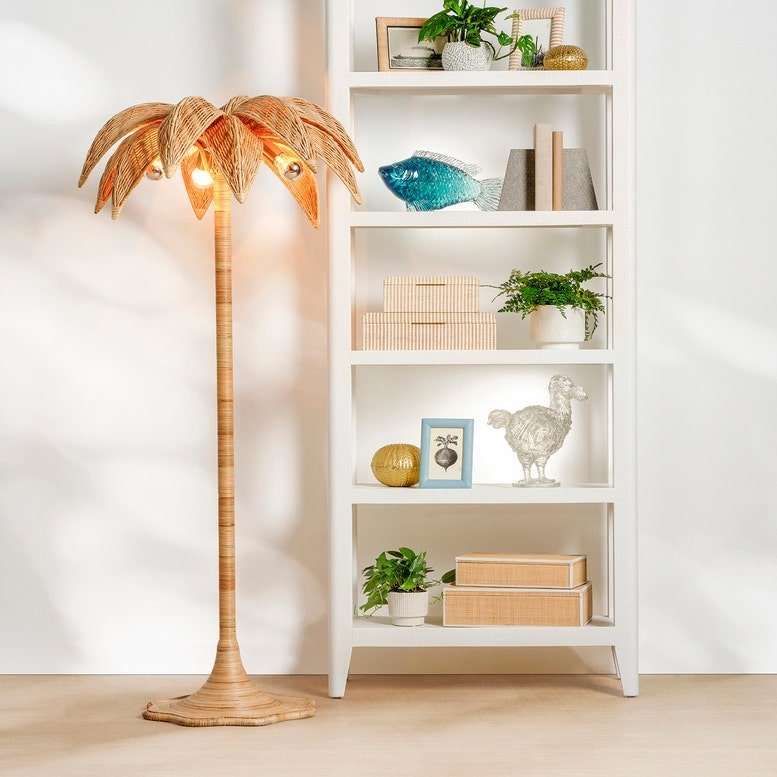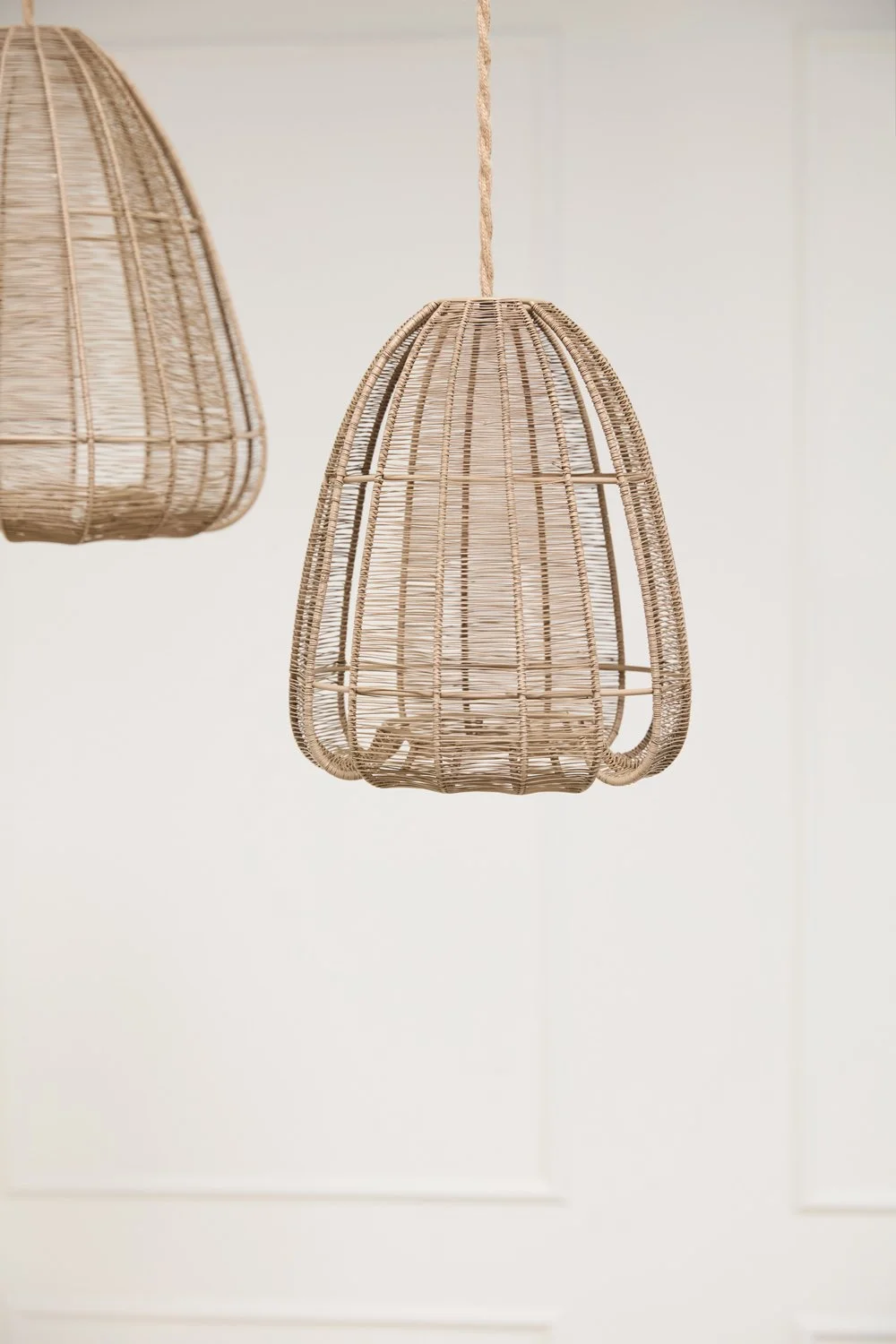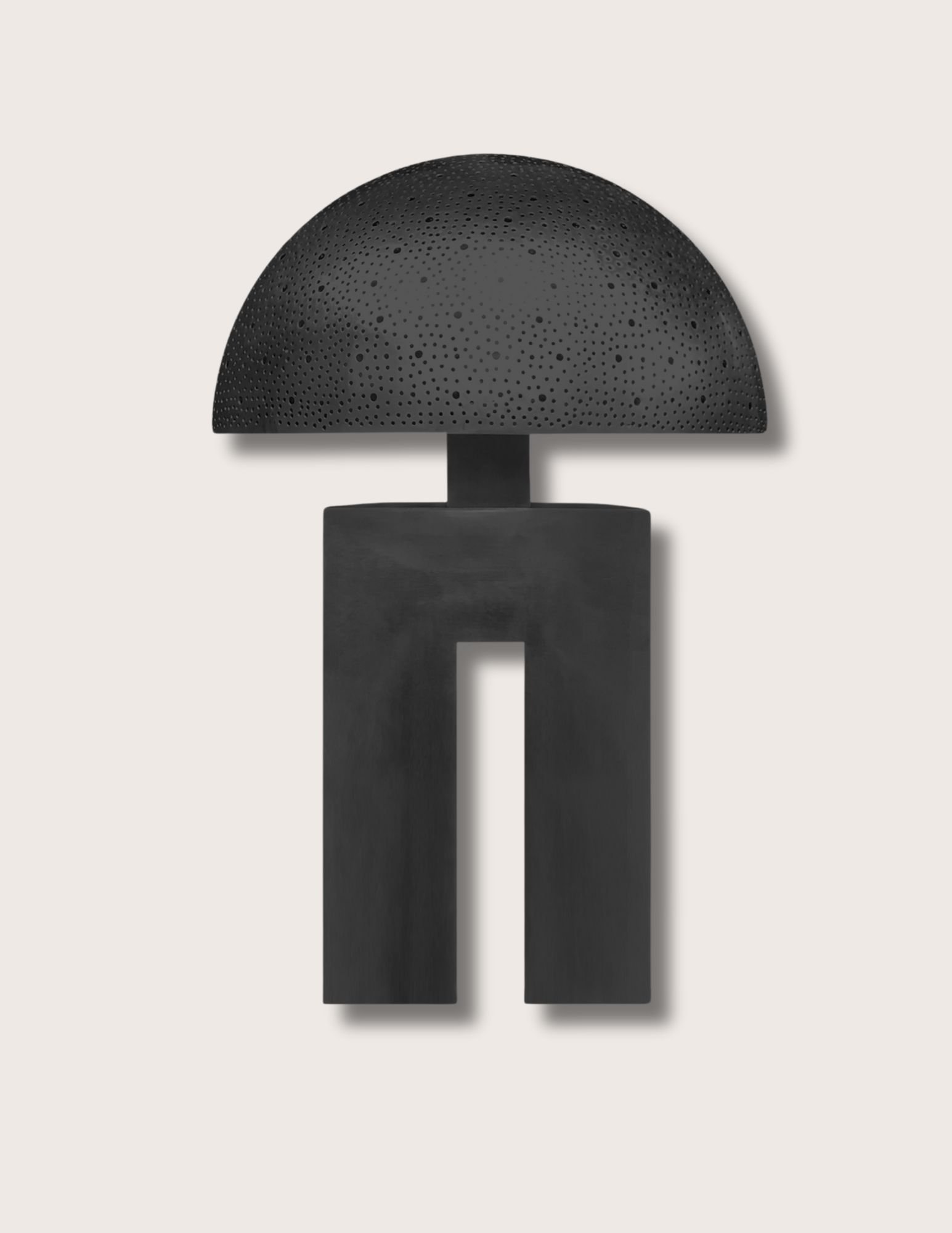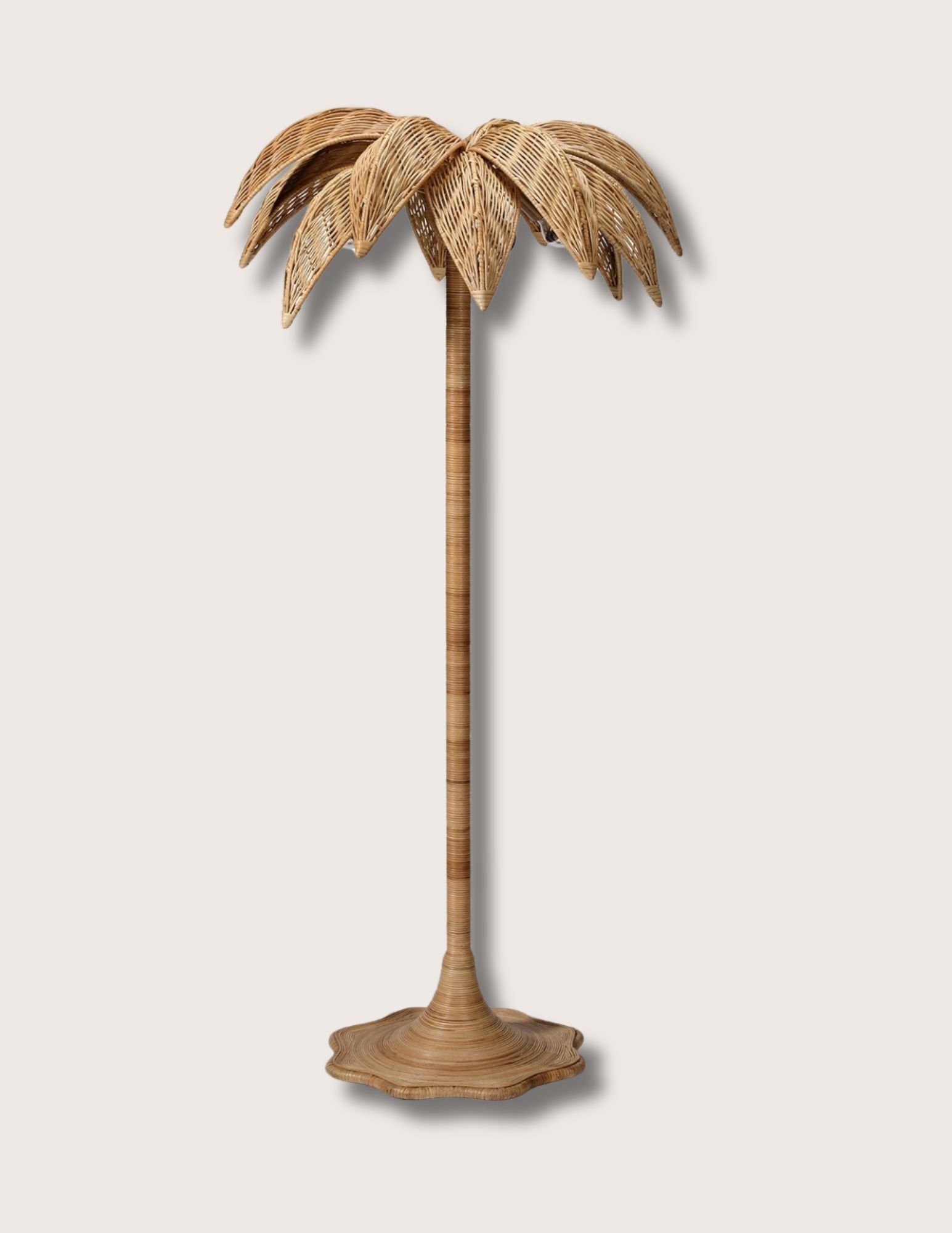 Image 1 of 4
Image 1 of 4

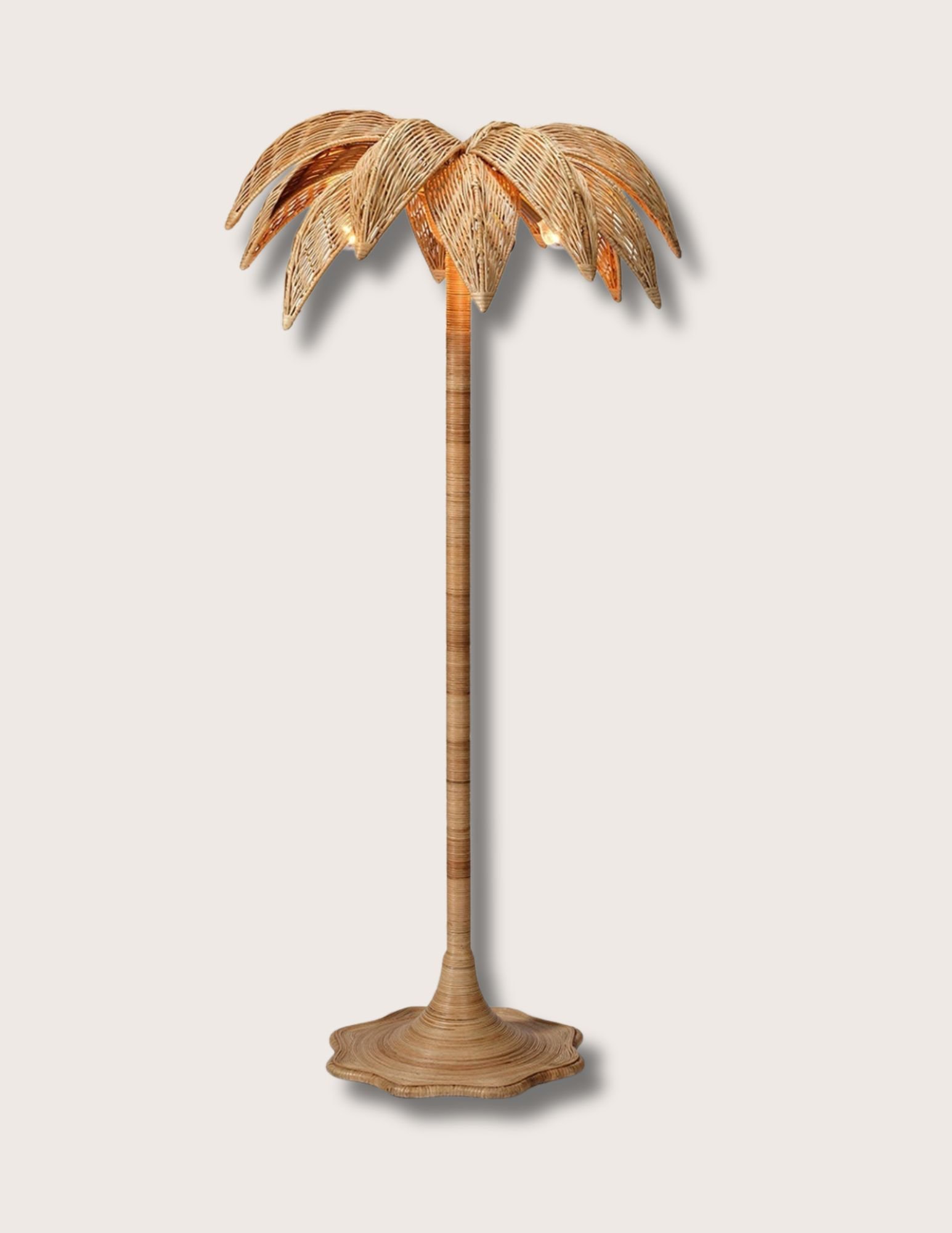 Image 2 of 4
Image 2 of 4

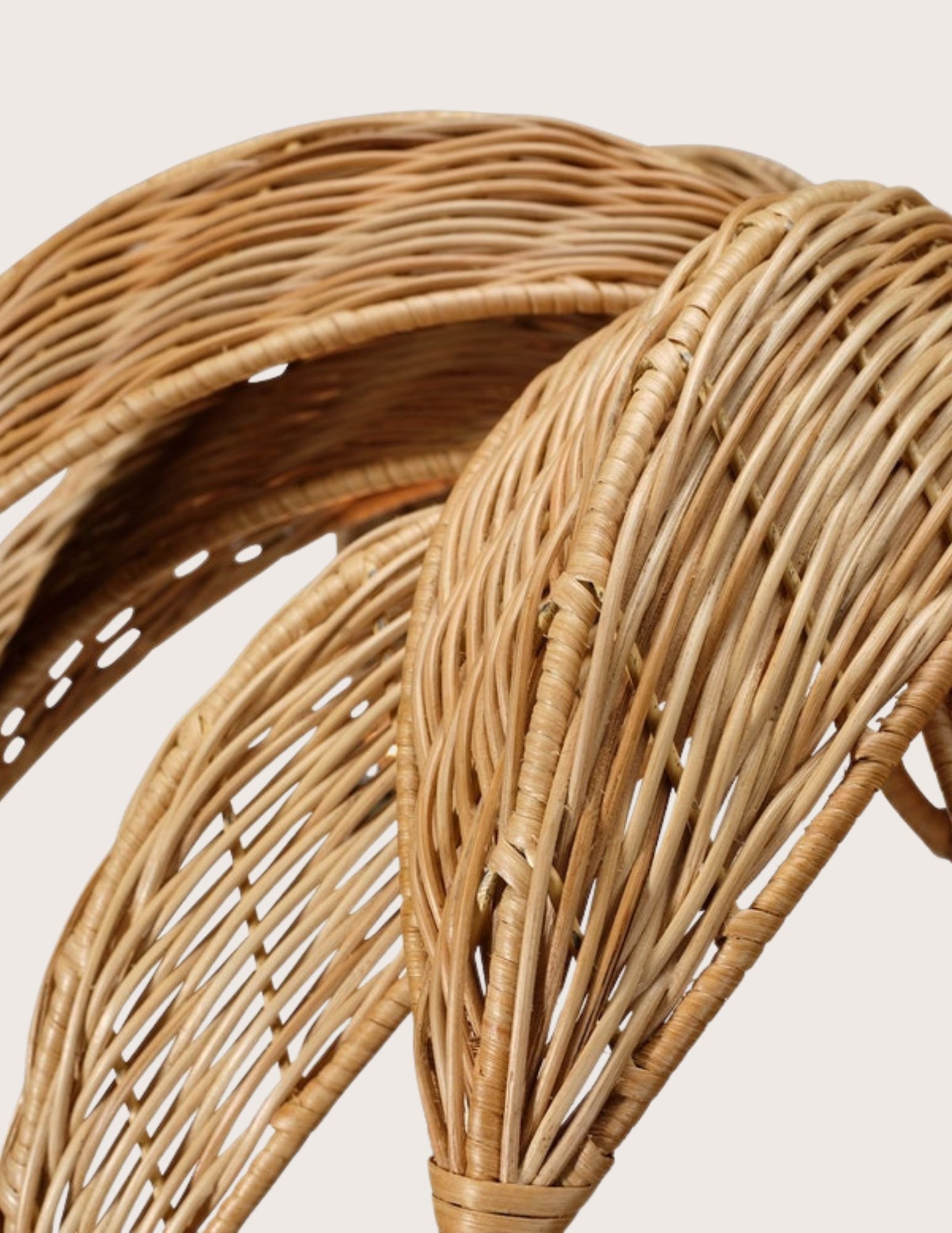 Image 3 of 4
Image 3 of 4

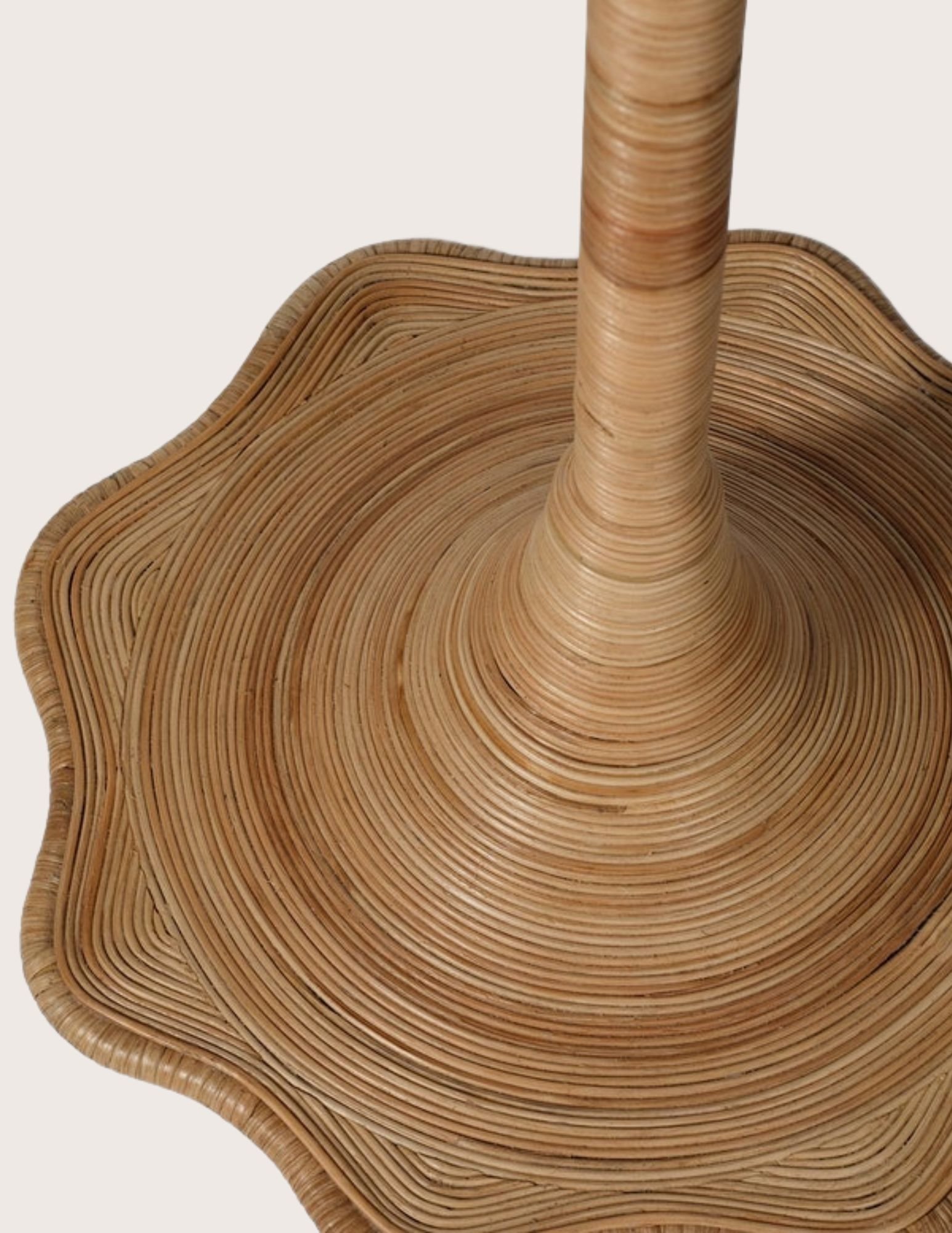 Image 4 of 4
Image 4 of 4





Manja Rattan Floor Lamp
Details
Add equal parts whimsy and luxury to any room in your home with the Manja Rattan Floor Lamp. Crafted from mixed rattan, this artistic floor lamp is shaped exactly like a palm tree rising from a circular, tulip-edged base. A beautiful lighting sculpture that’s designed to stun in your home’s decor.
Editors' Note
This beautiful palm leaf floor lamp is named Manja — the Hausa word for palm oil — the near miraculous substance derived from the fruit of the oil palm, of the Elaeis guineensis species of plants which is common to West Africa. For more than 5,000 years various West African cultures have cultivated this plant and its oil. Though today it is perhaps most famous as a key ingredient in many West African dishes, such as Banga soup, palm oil found numerous uses, including employment as an ointment, antidote, and, in Nigeria, a component in making soap. In 18th century Dahomey (present-day Benin), palm oil was added to the walls of the royal palace and was used to light street lamps. Some of the trees, which grow in wild groves were sectioned off into royal plantations for the production of palm wine, a libation created from the sap of the tree. The extremely useful oil was extracted from the fruit of the oil palm and then subjected to successive rounds of boiling and filtering through water, producing a liquid celebrated for its deep reddish-orange hue. Alternatively, the kernel of the fruit could be cracked and used to make a clear palm kernel oil. In both cases, the majority of the gathering was done by men, while the duties of processing the fruits into oil belonged to the women. As the trade in African bodies began to die down going into the 19th century, palm oil became a highly sought after commodity for British colonizers looking to exploit their African holdings. Palm oil quickly came to the fore for its uses as an industrial lubricant. Already a well-traded commodity even during the slave trade, by the early 1850s the UK alone was importing nearly 36,000 tons annually. Contrary to widespread images of European domination of Africa in all matters, the trade in palm oil was conducted by European men who would travel along the West coast of Africa in small schooners. Far from the acts of oppression and tropes of superiority that would later follow, these men lived and conducted business on abandoned ships because they were not allowed to build on land by the local authorities. The uses of palm oil became so many and widespread that in 1898, the B.J. Johnson Soap Co., founded by Caleb Johnson, released a soap made from the oil of palms and olives. The product was so successful that, in 1917 the company rebranded entirely around its flagship product, becoming known as Palmolive. In response to European demand, production of palm oil increased on the African continent, often spurred by colonial powers. Dahomey established additional oil palm plantations, while in southern Ghana, where fewer oil palms grew in the wild, efforts at greater cultivation began in earnest. Since the end of colonialism however, a number of factors have conspired to usurp the position of African nations atop the world's palm oil export market. While Nigeria, in particular, was the leading exporter in palm oil through the mid-1960s, the imposition of terms by the World Bank's Structural Adjustment Program following its independence from Great Britain, as well as the effects of the 1967 civil war and the petroleum boom that followed, all served to reduce the nation's emphasis on agriculture, including its production of palm oil. Today, while African nations remain among the top consumers of palm oil, Indonesia is its largest global exporter, producing as much as 54% of the global supply.
Details
Add equal parts whimsy and luxury to any room in your home with the Manja Rattan Floor Lamp. Crafted from mixed rattan, this artistic floor lamp is shaped exactly like a palm tree rising from a circular, tulip-edged base. A beautiful lighting sculpture that’s designed to stun in your home’s decor.
Editors' Note
This beautiful palm leaf floor lamp is named Manja — the Hausa word for palm oil — the near miraculous substance derived from the fruit of the oil palm, of the Elaeis guineensis species of plants which is common to West Africa. For more than 5,000 years various West African cultures have cultivated this plant and its oil. Though today it is perhaps most famous as a key ingredient in many West African dishes, such as Banga soup, palm oil found numerous uses, including employment as an ointment, antidote, and, in Nigeria, a component in making soap. In 18th century Dahomey (present-day Benin), palm oil was added to the walls of the royal palace and was used to light street lamps. Some of the trees, which grow in wild groves were sectioned off into royal plantations for the production of palm wine, a libation created from the sap of the tree. The extremely useful oil was extracted from the fruit of the oil palm and then subjected to successive rounds of boiling and filtering through water, producing a liquid celebrated for its deep reddish-orange hue. Alternatively, the kernel of the fruit could be cracked and used to make a clear palm kernel oil. In both cases, the majority of the gathering was done by men, while the duties of processing the fruits into oil belonged to the women. As the trade in African bodies began to die down going into the 19th century, palm oil became a highly sought after commodity for British colonizers looking to exploit their African holdings. Palm oil quickly came to the fore for its uses as an industrial lubricant. Already a well-traded commodity even during the slave trade, by the early 1850s the UK alone was importing nearly 36,000 tons annually. Contrary to widespread images of European domination of Africa in all matters, the trade in palm oil was conducted by European men who would travel along the West coast of Africa in small schooners. Far from the acts of oppression and tropes of superiority that would later follow, these men lived and conducted business on abandoned ships because they were not allowed to build on land by the local authorities. The uses of palm oil became so many and widespread that in 1898, the B.J. Johnson Soap Co., founded by Caleb Johnson, released a soap made from the oil of palms and olives. The product was so successful that, in 1917 the company rebranded entirely around its flagship product, becoming known as Palmolive. In response to European demand, production of palm oil increased on the African continent, often spurred by colonial powers. Dahomey established additional oil palm plantations, while in southern Ghana, where fewer oil palms grew in the wild, efforts at greater cultivation began in earnest. Since the end of colonialism however, a number of factors have conspired to usurp the position of African nations atop the world's palm oil export market. While Nigeria, in particular, was the leading exporter in palm oil through the mid-1960s, the imposition of terms by the World Bank's Structural Adjustment Program following its independence from Great Britain, as well as the effects of the 1967 civil war and the petroleum boom that followed, all served to reduce the nation's emphasis on agriculture, including its production of palm oil. Today, while African nations remain among the top consumers of palm oil, Indonesia is its largest global exporter, producing as much as 54% of the global supply.
Additional Details
Sculptural floor lamp
Materials: Mixed Rattan
Size: 26"D x 62"H
Power source: Plug-In
Lighting type: 3 bulbs
Bulb type: Type A Incandescent
Socket type: E26 MA
Wattage: 60W
Switch type:1-way
UL/CULCertified: Yes/Yes
UL Rating: UL Listed (Dry Locations)
Cord color: Clear
Cord length: 136"
Outdoor suitable: No
Weight: 24.91 lbs
Natural size variation to be expected
Imported
Made to order
Ships to the US in 3-4 weeks
